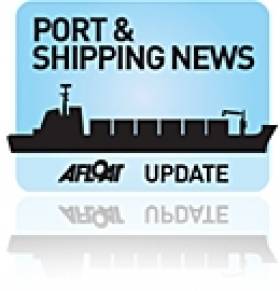Displaying items by tag: Clarendon Dock
Plans for Belfast Historic Maritime District
In addition there will be educational, arts and cultural space for both residents and visitors. Showcasing the latest advances in 'green' architecture, the project has been master-planned by global award-winning architect Sir Nicholas Grimshaw, whose projects include the internationally-acclaimed Eden Project in Cornwall.
Belfast Harbour Commissioners chairman, Len O'Hagan, said: "City Quays is an occupier led project to provide high quality waterfront landscape for business, leisure, tourism and the arts. The aim is to help regenerate and reinvigorate the heart of historic Belfast, providing an attractive setting for potential overseas investors.
"City Quays will complement Titanic Quarter, including the Northern Ireland Science Park and Belfast Metropolitan College, linking them to the City Centre through a new cycle and pedestrian bridge.The scheme has generated significant interest and support from a wide range of stakeholders who have been consulted as part of the master-planning process. We will continue to involve and engage with these groups as the scheme develops in terms of layout and uses."
The project also proposes to incorporate a new pedestrian and cycle bridge which will also integrate the City Quays with the first phase of Belfast's new bus-based rapid transit system. Most of the scheme has been set aside for commercial office space, with a further 14% allocated for leisure / hotel uses. An allocation of 6% is for local retail units and 12% is set aside for residential use. Work on site will begin once the planning process has been completed and initial occupiers have been secured.
For further information and on the activities of Belfast Harbour logon to www.belfast-harbour.co.uk
























































